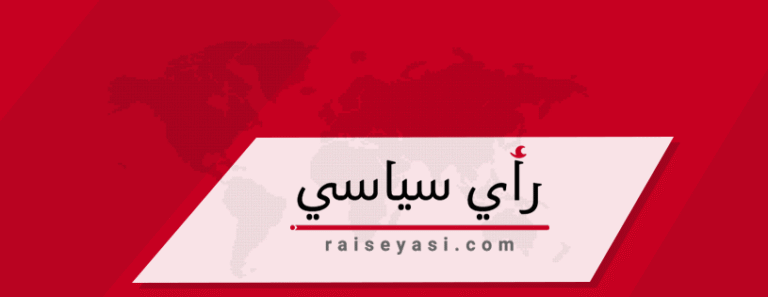By Nesrine Malik – The Guardian:
Losing credibility Netanyahu has acted to diminish Iran while he still can, and in doing so regain support from his allies
There are two ways of looking at events in the Middle East over the past year and a half. One is that the response to 7 October 2023 was a break from the past. The attack by Hamas triggered an Israeli response so vengeful that it has been impossible to fit within the boundaries set by international laws or contain geographically – the genocide in Gaza, the invasion of southern Lebanon, the occupation of the buffer zone in southwestern Syria and airstrikes across that country, and now its attacks against Iran.
Then there is the explanation that these events are part of a historical continuum. Regional peace was the result of a volatile status quo that was always vulnerable to disruption. It only looked tenable because it relied on a variety of factors that, working together, looked like a settlement. This fine balance has been tipped by an Israeli government that is now fixated on pursuing its own agenda, singlehandedly rewriting the future of the region in ways that it is unable to explain and unwilling to control.
One of the elements of this brittle peace was the presence of the Gulf powers as mediators. Gulf rapprochement with Iran was not motivated by trade or fellow feeling, but rather the pragmatic need for stability. Some Gulf states also crossed a historic red line and either recognised Israel with the signing of the Abraham accords or began a process of normalisation. Now these countries find themselves caught between two feuding sides and at risk of alienating Israel’s main ally, the US, with whom it has close military and economic ties.
The status quo also relied on suppressing Palestinian rights to a degree that everyone was happy with; everyone except the Palestinians, of course. In a sense, the Palestinian problem had also been neutralised. When the assault on Gaza began, it exposed Israel’s views and intentions to the world, raising the spectre of a new Nakba. It also brought Iran and its proxies, Hezbollah and the Houthis of Yemen, into play as defenders of Palestinian rights. Once Iran entered the frame, and Israel felt empowered to act without break or censure, there was no going back.
Something else has snapped – justification for Israel’s actions has been stretched beyond plausibility. With the safety of Jewish people as the rationale for unbridled support, and Israel’s importance as a close partner in a strategic region, the US and other allies have provided carte blanche for the country to defend itself. But this relies on Israel responding to any threats in a proportional way, so as not to create further instability. Israel has not only responded inappropriately to threats, it has weaponised them to such an extent that it has become a primary factor in its own insecurity, and that of the rest of the region.
Backing from allies also relies on transparency between the camps. The colossal military, economic and political cover is provided on the understanding that whoever is in charge of the Israeli government has no other motives for engaging in conflict other than securing safety for its citizens. Trust has been broken by the current prime minister, Benjamin Netanyahu, who is using the war to bolster public support for his own political career. He is not only making Israelis less safe, but further capitalising on that insecurity as he plays the role of protector.
Relations with key allies were being put to the test over Gaza as public pressure from within western countries grew, fed by constant images of starving children, charred hospitals and row after row of body bags. By opening a new front and engaging another enemy, the Israeli government has a chance at both restoring the terms of its pact with its sponsors, and the historical narrative that it is the victim, acting in irreproachable good faith. Here it is, once again in need of support, suffering strikes and civilian casualties at the hands of a belligerent neighbour.
Stories of people dying of starvation in Gaza or of the hungry being killed while queueing for food, have fallen away from the headlines. The relentless assault on the West Bank and the expansion of illegal settlements has receded from view. The pressure that was beginning to build on Israel to let in more aid and honour a ceasefire has been replaced with the same mealy-mouthed defences that we saw in the early days of the war in Gaza, plus the same pabulum of urging “restraint”. The clock is reset.
Regarding the strikes on Iran, Israel appears to have drawn upon the lessons of the Iraq war, claiming it has acted in defence on the basis of intelligence that the world has to take on trust. How imminent was the threat? Who has the right to decide when a “pre-emptive strike” is justified? And who has the right to respond to an illegal unilateral attack? What we do know so far is that global politics is run on the basis of exceptions and different benchmarks of sovereignty. Yes, Iran has violated its nuclear non-proliferation obligations, but Israel refused to sign up to them altogether.
These distinctions in the past could be more easily smoothed over, because Israel and the US were “the good guys”, and Iran was part of an “axis of evil”. But the erosion of Israel’s and the US’s credibility as honest interlocutors, wise in their security considerations and compliant with international law, has made these campaigns less straightforward.
Here is the real war that Israel is fighting. Iran still retains a measure of political will and military capability that is too high for comfort for Israel. And so as the window of Israeli credibility closes, it becomes more necessary for it to diminish Iran’s political credibility and military capabilities. But what is the endgame? Does Israel envisage a close-ended campaign, after which it retreats, satisfied with the results? Or is that not a plausible scenario, considering the counterstrikes it has provoked. It’s all looking very Gaza-like: escalation with no end; or regime change with no plan.
Both Israel’s campaigns – the propaganda one and the one on the ground – share one thing: they regard the Middle East as a theatre for domestic politics, reputation management and experimentation in bringing about “safety” on yet-to-be-defined terms. But the region is not just Israel’s back yard. It is other people’s homes and they have their own politics, histories, populations and security needs that, increasingly, are subject to a country that has decided that only its own agenda matters.


